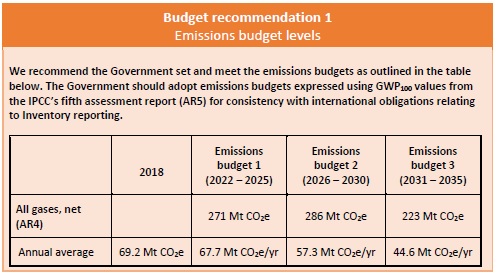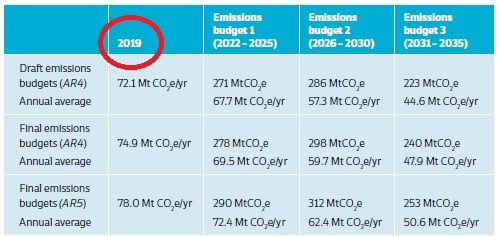Reading the Climate Change Commission's final advice, the obvious question is why their budgets are so much higher than those proposed in their draft (by about half a year's emissions over 14 years)? Simple: we're being baseline-scammed. The draft report set its budget based on 2018 emissions:
But the final report calculates them from the new, higher 2019 base:
The difference is 5.7 million tons a year - an 8% increase. And they've basicly just carried this through to the 2035 budget (though the pathway we use to get there is slightly different). Not that they're honest enough to admit it, instead saying that the difference is "primarily due to increases in historic emissions estimated in New Zealand's Greenhouse Gas Inventory and increases in projected emissions under the Current Policy Reference case". None of which would matter if they'd used honest, 1990 Kyoto numbers in the first place.
Baseline scamming is the oldest trick in the climate-delay book. Want to pollute more, while hiding the fact you are doing so? Use a later, higher baseline! (See also: New Zealand's Paris target, which uses a 2005 baseline to hide how weak it is against internationally-reportable 1990 numbers). This rewards failure, delays action, and is fundamentally dishonest. Its use by the Climate Change Commission undermines trust in the entire Zero Carbon Act regime, which was meant to bring honesty to climate change policy. But if they're willing to nakedly scam us like this, why should we trust their reporting, their monitoring, or their future recommendations?







